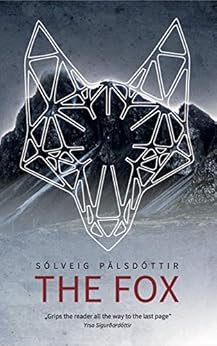3 Stars
This is the first book I’ve read by this Icelandic author. Though it is the first to be translated into English, it is apparently the fourth in a series featuring Guðgeir Fransson.
Guðgeir has been suspended from the Reykjavík police force because “He had made a serious mistake and had then made an error of judgement in keeping quiet about sensitive information that concerned him at a personal level.” A colleague lost his life and Guðgeir’s marriage is in tatters. He has taken a job as a security guard in Höfn, a small town in southeastern Iceland. While living in exile, he is trying to repair his relationship with Inga so when his year-long contract is over, he can hopefully return to his family and job.
Guðgeir becomes aware that a Sri Lankan woman, Sajee Gunawardena, has disappeared. She arrived in Höfn believing she had a job in a salon waiting for her. That job does not exist, and though she stayed at a local hostel for a night, she has not been seen since and there is no evidence of her having left town. Guðgeir decides to investigate, though of course he can only do so unofficially.
The story is narrated from two perspectives, that of Guðgeir and Sajee. The reader learns that Thormóður, the owner of the hostel, has taken Sajee to Bröttuskriður, a remote farm home to Selma Ísaksdóttir and her son Ísak. Sajee believes she will work there for a short while as a cleaner and a companion for Selma, but it soon becomes clear that she is like the fox that Ísak keeps tethered and muzzled.
The setting creates a foreboding atmosphere. The farm is remote and isolated; the farmhouse is grey so “its walls blended in with the grey basalt of the scree behind it.” All the windows have “curtains in a coarse, dark material” except the “narrow basement windows which had been covered with black plastic.” The mountain looming over the farm “resembled a vast fist with sharp nails at the ends of long claws.” Sajee is told about the Hidden People who are described as being good “’unless they’re mistreated . . . [and then they become] merciless in getting their own back.’” Believing in spirits but unfamiliar with Icelandic folk culture, Sajee is made uneasy, as is the reader.
The behaviour of Selma and Ísak also adds to the unease. Selma, with her mercurial temperament, is prone to sudden, unpredictable changes of mood. She may have mental health issues; an acquaintance describes her as “a bit odd. Half crazy, I suppose. She went through some terrible shock when she was young.’” Except for a brief time at university, Ísak “’was always very reliant on his mother, and maybe he found it difficult to get on with other people. He was always on his own.’” A comment made by Ísak about his mother is disturbing: “’She wanted to get rid of him because he’d put her in this position. It was pure desperation, you understand?’”
Guðgeir emerges as a likeable character. His complete backstory is not known, but he seems like a decent man. He obviously regrets his past mistakes and is determined to repair his fractured relationship with his wife. He loves Inga and his two children. When he learns about Sajee, he becomes concerned for her welfare and persists in trying to find her, even calling on former colleagues to help. Silenced, a second book in the series has been translated, and I’m interested in finding out what happens to him.
The writing style sometimes seems clunky, but that may be the translation. I will keep an eye out for Sólveig Pálsdóttir.

No comments:
Post a Comment